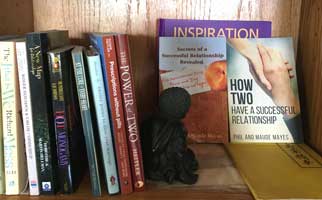Successful Relationship Reading Corner
 This week, we wrote that relationship differences can be valuable and important. Here are some people writing about differences in relationships. This week, we wrote that relationship differences can be valuable and important. Here are some people writing about differences in relationships.
7 Things All Successful Couples Agree On & 7 Things It's OK To Disagree On "'Differences are what keeps the relationship interesting,' NYC-based therapist Kimberly Hershenson, LMSW tells Bustle. 'Values should be similar and what you are looking for in a relationship — such as commitment, children, etc. — are important for a long lasting relationship. However, you shouldn't agree on everything.'"
How to Accept Your Differences for Relationship Success "Many star-struck couples soon realize that the person they’re in love with may be someone they know well, but not someone they share the same characteristics, passions, or hobbies with. I do understand that you are very much in love with each other, but you have to understand that you are not clones of each other."
“But We’re So Different”: How Differences Shape And Impact Your Relationship "Just as there are benefits to sharing similarities with your partner, there are several benefits to having differences as well. First, you have the opportunity to share your experiences and interests with the person you love. It provides the opportunity to learn more about who your partner truly is, what makes them tick. You may find they enjoy a variety of activities you have never tried. You might find yourself drawn closer to them because of their adventurous spirit or their willingness to try some of your interests. You can learn much about your partner through shared experiences."
|
|